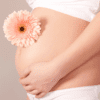Acupuncture, Chinese Herbs and Food for Fertility
Traditional Chinese medicine, including acupuncture and Chinese herbal formulas, has been used for over 1,000 years of recorded history in China. Acupuncture and Chinese herbs are often used in collaboration during your IUI or IVF cycle. There are many ways to support fertility through a combination of acupuncture, moxibustion, herbs, fertility foods, and lifestyle changes.
TCM Approach to fertility
In 1237 A.D., a TCM book was devoted to gynecology and obstetrics of Chinese medicine called “The Complete Book of Effective Prescriptions for Diseases of Women.” The TCM approach to reproduction is based on the liver, the kidney, and the spleen.
- The kidney stores reproductive essence
- Nutritive essence is transformed into qi (energy), and blood by the spleen
- The liver controls qi and blood flow.
Stagnation of qi or blocked qi, and insufficient qi or energy in the pelvic area contribute to the root cause of infertility and reproductive issues, including menstrual pain and heavy blood flow. Often this is caused by stress, overworking, excessive physical activity, and other factors. Other factors include endometriosis, dysmenorrhea, abnormal uterine bleeding, ovarian reserve issues, luteal phase defect (LPD), autoimmune disease, elevated FSH levels, polycystic ovarian syndrome (PCOS), and some other female reproductive challenges.
Other root causes of infertility in the TCM perspective (your acupuncturist can help discover the imbalances behind fertility issues and map out an individualized treatment.)
- Kidney-yang deficiency
- Kidney-yin deficiency
- Blood and qi deficiency
- Blood and qi stagnation
- Liver qi stagnation
- Phlegm and dampness
Female fertility
TCM approaches the female menstrual cycle as follows –
- Menstruation – It is essential to ensure you have a good flow of blood and qi in this fertility phase. Acupuncture points can help to increase the flow of both qi and blood.
- Follicular phase – During this phase, it is crucial to nourish the liver and kidney (systems) blood, provide support to the ovaries, and help build a healthy uterine lining. Acupuncture treatment and Chinese herbal formulas are beneficial.
- Ovulation – Ovulation is approached in TCM by nourishing and strengthening the blood and the essence of the spleen and kidneys.
- Luteal phase – Acupuncture and TCM support the flow of qi and blood and ready the endometrial lining for implantation.
Male fertility
TCM can support male fertility in the following ways
- Regulates the hypothalamic-pituitary-testicular axis
- Boost the function of reproductive cells
- Reduces inflammation
- Prevents oxidative stress
- Raises testosterone levels
- Improves sperm quality
- Improve sperm count and motility
How does acupuncture help fertility?
The first way to improve fertility is to reduce stress and practice relaxation. Often qi is limited or blocked because of burnout and worries, which is especially important before your period. Acupuncture is used to help balance reproductive hormones, build a healthy uterine lining and increase the circulation of qi and blood in the uterus and ovaries. Lifestyle and dietary changes are part of the traditional Chinese medicine approach to fertility for both males and females.
Precisely placed needles help regulate the Hypothalamic Pituitary Ovarian axis, which allows fertility hormones such as progesterone to be restored. This also makes acupuncture a potential supportive treatment for threatened or recurrent miscarriages (RPL) due to its beneficial effects on hormone levels. Acupuncture has been found in many studies to improve live birth outcomes by stimulating specific body points and increasing beneficial blood and hormonal flow.
Acupuncture and TCM for menstruation
You are avoiding stress, and relaxing before your period is recommended. Herbal formulas can also help improve your cycle, ease pain, and regulate blood flow. Acupuncture balances and circulates qi in the body to help normalize menstruation.
Two herbal formulas often used for supporting typical menstruation include
- Dang Gui Shao Yao San, A Japanese Kampo formula called Toki-shakuyaku-san, is used for anemia, poor circulation, and irregular menstruation.
- Shao Yao Gan Cao Tang, also known as Shakuyaku-kanzo-to, helps regulate menstruation and address amenorrhea and dysmenorrhea.
How acupuncture and TCM help to support menstruation
- Regulate reproductive hormones
- Reduce hormones (elevated levels) that block ovulation
- Improve blood flow to the ovaries and uterus
- Support ovulation
- Regulates menstruation

TCM foods for fertility
In both Western and Eastern medicine, the importance of diet and fertility are entwined. Poor nutrition and diet can lead to fertility issues. It is overwhelming agreed that a diet rich in variety and nutrients is crucial to overall well-being. Avoiding overindulgence and overeating highly processed foods, red meats, starchy vegetables, and refined sugars have negatively affected fertility. The foods that are recommended in traditional Chinese medicine include:
Nutrient-dense foods
- Foods rich in folic acid – folic acid is the supplement version of naturally occurring folate found in foods like oranges, lemons, bananas, melons, nuts, beans, peas, and dark green leafy vegetables.
- Iron-rich foods – white beans, lentils, kidney beans, chickpeas, tofu, spinach, oatmeal, and broccoli
- B-vitamin rich food – turkey, fish, pork, eggs, soybeans, chicken, walnuts, oatmeal, brown rice, and green leafy vegetables
- Omega-3 fatty acids – walnuts, fatty fish (i.e., salmon, sardines), flaxseed, grass-fed beef, and chia seeds
- Foods rich in isoflavones (plant-based estrogens) – soybean or other soy foods have been found to increase the quality of sperm
- Antioxidant-rich foods for male fertility – blackberries, blueberries, pomegranate, cranberries, green tea, dark chocolate, and turmeric
Traditional fertility foods
- Chinese red dates – Used traditionally to nourish blood and qi and increase the chances of conceiving
- Maca root – is an adaptogen used for thousands of years to support fertility by reducing stress and supporting testosterone levels in men and women.
- Tangerine peel – used to support qi flow and promote male fertility, including addressing low sperm count.
- Sesame seeds – iron deficiency or anemia can affect fertility, and sesame seeds are a rich source of iron and calcium
- Goji berries, also known as Gou Qi Zi – this fruit is packed with antioxidants and are used traditionally to nourish kidney yang, increase sperm count, and support follicle growth
- Seaweed – used in Chinese medicine, seaweed and algae support kidney essence, dissolve masses (i.e., cysts), and are rich in B vitamins, vitamin A, iron, and zinc.
Chinese herbal formulas for fertility
Chinese single herbs are combined to form formulas, and it is best to speak with your acupuncturist to find out which herbal formulas will work best with your individual reproductive needs. Some popular fertility formulas include:
- You Gui Wan
- Zuo Gui Wan
- Wen Jing Tang
- Shao Fu Zhu Yu Tang
- Liu Wei Di Huang Wan
- Fu Ke Zhong Zi Wan
Lifestyle changes to support fertility with traditional Chinese medicine
- First and foremost, reduce as much stress as you can from your life – excessive stress and overwork affect your fertility, immune function, and sleep.
- Practice relaxation techniques like meditation, mindfulness, and Tai Chi to reduce stress levels
- Maintain a healthy weight before trying to conceive, as obesity can cause a higher risk for complications
- Regular exercise to boost energy and reduce anxiety and stress
- Do not exercise excessively during your follicular and ovulation phase, especially when going through IVF or IUI cycles, as this can cause imbalances in your qi, blood, and essence.
Trying to conceive or know someone who is? Reach out to us to schedule your 15-minute complimentary consult to learn more about our unique approach and method.











